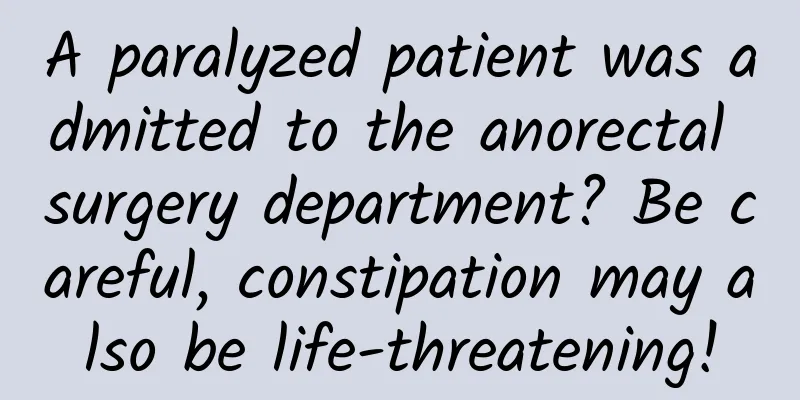Heart and brain connected, different diseases treated with the same method

|
Author: Liu Xiaolu, deputy chief physician, Peking University Third Hospital Reviewer: Yang Qiong, deputy chief physician, Peking University Third Hospital Although brain disease and heart disease seem to be two independent fields, there is a close connection between them. The heart is an important organ in the human body, responsible for pumping blood and providing sufficient oxygen and nutrients to the brain and other organs. The brain, as the control center of the human body, plays a key role in regulating and controlling the heart. Therefore, when diagnosing and treating brain disease and heart disease, we need to take into account the mutual connection and mutual influence between them, start from a holistic perspective, comprehensively consider, clarify the cause, and treat in a targeted manner. As the saying goes, "The heart and brain are connected, and different diseases can be treated the same way." This is the third time that Lao Wang has been hospitalized due to cerebral infarction. Although Lao Wang usually takes medicine according to the doctor's orders, he still cannot escape the "curse" of recurring cerebral infarction. The attending doctor arranged medication and rehabilitation treatment for Lao Wang, and also made appointments for many examinations for him, such as cranial CT, MRI, ultrasound and laboratory tests. What puzzled Lao Wang was that in addition to the brain examination, the doctor also arranged several heart examinations for him, and told Lao Wang that these results were very important. Why? Lao Wang was puzzled. He was obviously suffering from cerebral infarction, why did he need to do a heart examination? In layman's terms, cerebral infarction is a blockage of cerebral blood vessels, which leads to ischemia and necrosis of brain tissue, resulting in clinical symptoms such as numbness and weakness of limbs and slurred speech. The blood supplying the brain tissue comes from the heart and is pumped into the cerebral blood vessels through the regular contraction of the heart. The relationship between the heart and cerebral blood vessels is like a water pump and a water pipe connected to it. Blockage of cerebral blood vessels may be caused by lesions in the cerebral blood vessels themselves, such as atherosclerotic plaques causing vascular stenosis; or it may be caused by "impurities" in the "water pump" of the heart, and the "impurities" drift with the blood to the cerebral blood vessels, causing blood vessel blockage. The "impurities" in the heart are called emboli. A healthy heart beats regularly, and the heart valves open and close like the gates of a water pump. Blood passes quickly through the heart and emboli are not easy to form. When the heart beats irregularly and uncoordinated or there are problems with the opening and closing of the heart valves, blood is easy to stagnate in the heart, and emboli are formed unknowingly. Figure 1 Copyright image, no permission to reprint Arrhythmias such as atrial fibrillation (abbreviated as "AF"), ventricular aneurysms caused by acute myocardial infarction, myocardial changes such as dilated cardiomyopathy, and heart valve diseases such as mitral stenosis may cause emboli to form in the heart, thereby increasing the risk of cerebrovascular blockage. Examinations such as cardiac ultrasound and dynamic electrocardiogram can screen for these heart diseases. Since the emboli produced by the heart and the vascular blockage caused by atherosclerotic plaque stenosis are different in thrombus composition, different types of antithrombotic drugs need to be selected to prevent cerebral infarction. Figure 2 Copyright image, no permission to reprint After carefully evaluating Lao Wang's overall condition, the doctor found that although there were no serious problems with Lao Wang's cerebrovascular system, paroxysmal atrial fibrillation was found, which was the "culprit" for Lao Wang's repeated cerebral infarction. Paroxysmal means that it occurs sometimes and not sometimes. Patients should not relax their vigilance just because it occurs intermittently. It can also cause emboli in the heart, increasing the risk of thrombosis, but making it more difficult to detect. This time when he was discharged from the hospital, the doctor customized a medication plan for Lao Wang to prevent cerebral infarction, and recommended that he go to the cardiology clinic for regular checkups. Lao Wang finally understood why his brain disease needed to be treated as a heart disease. |
<<: Helicobacter pylori: Small bacteria, big threat, how much do you know?
Recommend
What are the effects of low progesterone on the fetus?
Normal progesterone is a prerequisite for a succe...
Will I lose weight during early pregnancy?
Generally speaking, women's weight will incre...
How to play chess for beginners? Chinese chess rules: who eats who
Chess is also a puzzle game that exercises intell...
How long does it take to cure cervicitis?
Cervicitis is mainly divided into acute cerviciti...
Traditional Chinese Medicine Treatment of Trichomonas Vaginitis
Trichomonas vaginitis is a very common gynecologi...
What should I pay attention to after pregnancy with polycystic ovary
Polycystic ovary is a relatively common disease, ...
What are the symptoms of follicular dysplasia?
Follicular dysplasia means that the follicles do ...
There are a lot of white things on the vulva
Suddenly I found that my private parts were itchy...
Female uterus diagram
The Creator created "women" and gave th...
How many days is a normal menstrual cycle for women
After women enter puberty, the uterine wall is af...
Is Liubao tea good for the skin? What is the difference between the taste of Liubao tea and Pu'er tea?
Liubao tea has a reddish brown base, and the tea ...
Treatment of cervical erosion, Chinese medicine teaches you how to do it
Cervical erosion is a very common cervical diseas...
How long after caesarean section can I drink pure milk
Mothers who have undergone cesarean section need ...
Dull abdominal pain after pregnancy
After a woman becomes pregnant, she must always p...
Treatment methods and precautions for incisional pregnancy
When it comes to incisional pregnancy, few people...









